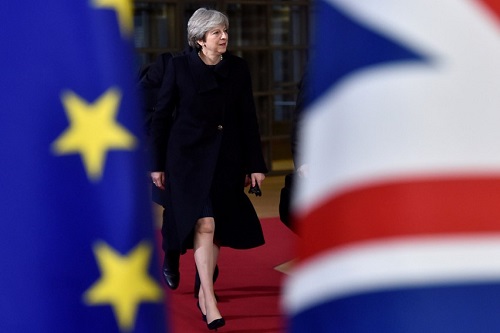Reuters photo
By
Tom Arms
Britain’s Electoral Commission was established 18 years ago as an independent watchdog to “ensure the integrity and transparency” of the British electoral systems. That is why when it says that urgent action is needed to defend a democracy that stretches back to the 13th century, the public should take notice.
The commission is seriously worried about the influence of foreign governments, misrepresentation by politicians, misuse of electronic data, and abuse of spending limits. It has called on Parliament to tighten the rules—especially as regards online campaigning.
The commission wants:
- Specific legislation to ban foreign organisations and individuals from financing British political parties and causes.
- A requirement for all backers of digital advertising to be identified.
- New, tougher laws on campaign spending.
- A change in the law to require all digital political campaign material to state who paid for it, bringing online adverts in line with physical leaflets and adverts.
- Details on how campaign money was spent.
- A substantial increase in the $25,000 fine for breaking the rules.
Problems relating to the digital age came under particular scrutiny from the electoral watchdog. Its proposals include requiring political parties to count online advertising targeted at local constituencies within individual candidate spending limits. These can be as low as $13,000. At the moment they are counted as part of national campaigns which can spend up to $22m. During the 2017 general election the Conservatives were able to target Facebook ads regarding local issues at individuals in specific constituencies and count it as national spending – just so long as they didn’t mention the name of the local Tory candidate.
Both Labour and the Conservatives spent substantial sums of money on online promotions during the last general election. In fact, digital spending accounted for more than 40% of all advertising spent by political parties in 2017.
The Electoral Commission’s call for action is partly a result of criticism as its own perceived failures in overseeing the referendum vote and the lateness of its actions. It has been more than two years since the Brexit vote and the watchdog has only recently fined Arron Banks’s Leave campaign $100,000 for breaking rules and its final report on the campaign and vote is still several weeks away from publication.
Unsurprisingly, the Brexiteers have attacked the watchdog’s calls for reform. Banks said the proposals would never have been made if the Remain camp had won the referendum. He added: “The deeper issue for me is the politicisation of the Electoral Commission.”
Tom Arms
I am a journalist, entrepreneur and historian with extensive experience in print, web and broadcast journalism. I started as a diplomatic correspondent, wrote several books (The Falklands Crisis, World Elections On File and the Encyclopedia of the Cold War), and then in 1987 started my own business (Future Events News Service, www.fensinformation.com) which over 25 years established itself as the world and UK media’s diary. Our strapline was: “We set the world’s news agenda.” I sold FENS in December 2012 but retained the exclusive broadcast rights to all of FENS data. To exploit these rights I set up LookAhead TV which produces unique programmes which “Broadcasts Tomorrow Today” so that viewers can “Plan to Participate.” LookAhead has appeared regularly on Vox Africa, Radio Tatras International, The Conversation and Voice of Africa Radio.
In addition to being a syndicated broadcaster and columnist on global affairs, Tom is also available for speaking engagements and can be contacted on Twitter, Linkedin and email: [email protected].



No Comments Yet!
You can be first to comment this post!